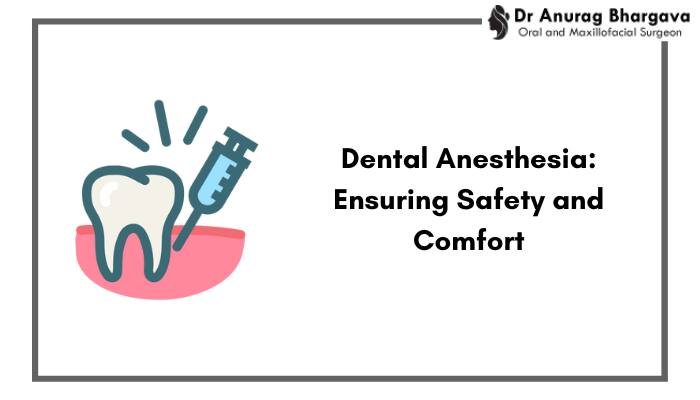Going to an oral and maxillofacial surgeon in India can be anxiety-inducing, especially when facing oral surgery. However, advancements in dental anesthesia have transformed the patient experience, ensuring both comfort and safety during these procedures. Whether it's a routine dental extraction or a complex oral surgery, understanding the role of dental anesthesia can alleviate fears and lead to a smoother, more pleasant dental visit.
The Importance of Dental Anesthesia
- Dental anesthesia is a vital aspect of oral surgery, providing pain relief and minimizing discomfort during procedures.
- It enables dentists and oral surgeons to perform intricate surgeries with precision and efficiency, ensuring the best possible outcome for patients.
Different Types of Dental Anesthesia
- Local Anesthesia: The most common type, administered through injections to numb a specific area where the procedure will be performed.
- General Anesthesia: Reserved for complex or lengthy surgeries, it induces a state of unconsciousness, allowing the patient to sleep through the procedure.
- Sedation Anesthesia: Involves administering medication to relax the patient and reduce anxiety while they remain conscious and responsive.
Ensuring Patient Safety
Before any procedure, the oral surgeon discusses the anesthesia plan, addressing any concerns and obtaining informed consent from the patient. Patients are carefully monitored throughout the procedure to ensure their vital signs remain stable.
Benefits of Dental Anesthesia
- Pain Relief: Dental anesthesia ensures patients experience little to no pain during the procedure, promoting a more relaxed and comfortable experience.
- Reduced Anxiety: For patients with dental phobia or anxiety, sedation anesthesia can alleviate their fears and make the entire process more tolerable.
- Improved Surgical Outcomes: Anesthesia allows the oral surgeon to work without interruption or patient discomfort, leading to better results.
Local Anesthesia: Key to Pain-Free Dental Procedures
- Local anesthesia is commonly used for minor dental treatments such as tooth extractions and dental fillings.
- The oral surgeon in Indore administers the anesthetic through injections, targeting only the area being treated.
- Side Effects: Local anesthesia is generally safe, but some patients may experience temporary side effects like numbness, tingling, or soreness at the injection site. Allergic reactions are rare but possible.
General Anesthesia: A Deeper Level of Sedation
- General anesthesia is utilized for more complex or invasive oral surgeries, such as wisdom tooth extraction or jaw surgery.
- It involves administering medications through intravenous (IV) or inhalation methods, inducing a state of unconsciousness.
- Side Effects: General anesthesia is considered safe when administered by trained professionals. However, potential side effects may include nausea, vomiting, sore throat, and grogginess upon waking. Rarely, there may be complications like allergic reactions or adverse reactions to the anesthetic agents.
Sedation Anesthesia: Relaxing the Anxious Mind
- Sedation anesthesia is ideal for patients with dental anxiety or phobia, enabling them to undergo the necessary treatments comfortably.
- The level of sedation can range from mild relaxation to moderate sedation, depending on the patient's needs and the complexity of the procedure.
- Side Effects: Mild sedation may cause drowsiness or temporary memory loss. While moderate sedation is generally safe, there may be a risk of breathing difficulties, especially if combined with other medications or conditions.
Preparing for Dental Anesthesia
Before any procedure, the patient's dentist in Indore will review their medical history, including allergies and current medications. It's essential for patients to follow any preoperative instructions, such as fasting requirements, to ensure the anesthesia's effectiveness and safety.
Conclusion
Dental anesthesia plays a crucial role in ensuring patient comfort and safety during oral surgery procedures. From local anesthesia for minor treatments to general anesthesia for more complex surgeries, the use of appropriate anesthesia techniques by oral and maxillofacial surgeons in India ensures a pain-free and stress-free experience for patients.
While dental anesthesia is generally safe, it's essential for patients to discuss their medical history and any concerns with their oral surgeon to minimize the risk of potential side effects. By understanding the benefits and risks involved, individuals can overcome dental anxiety and take the first step toward better oral health and overall well-being

